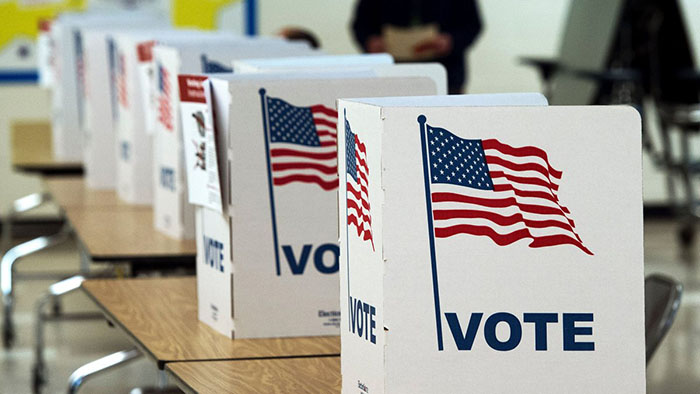
Okay here we go; five and a half weeks till we elect our national and local political leaders. We all know by now the anger and division that affects our culture. Whether in the halls of Congress or at our kitchen table we’ve experienced a tension that makes clear thinking about the social issues we face more difficult.
As I mentioned at the masses last week, Holy Trinity Parish has a responsibility to help parishioners properly reflect on the choices before us come November 4. Coming to our help are the Catholic bishops of the United States. They have issued a teaching document entitled Forming Consciences for Faithful Citizenship. (This resource can be found in full on our Election resources page. An overview is also available on the diocese website, www.dor.org.)
Here at Holy Trinity, in the bulletin, on our website and Facebook, we will be highlighting some of the main points to consider as Election Day approaches.
The document lays out four principles to guide a conscientious vote.
“The four principles include the dignity of the human person, the common good, subsidiarity, and solidarity. Rightly understood, this ethic does not treat issues as morally equivalent; nor does it reduce Catholic teaching to one or two issues. I anchors the Catholic commitment to defend human life from conception until natural death . . . to respect every human being as a child of God.”
Pope Francis, The Gospel of Life #22
“Catholic voters should use Catholic teaching to examine candidate’s positions on issues and should consider candidates integrity, philosophy, and performance. It is important for all citizens to see beyond party politics, to analyze campaign rhetoric critically, and to choose their political leaders according to principle, not party affiliation or mere self-interest.”
USCCB Living the Gospel of Life no. 33.
Dignity of the Human Person.
“Every person is created in the image and likeness of God. Every human being must be understood in his unrepeatable and inviolable uniqueness . . this means the primary commitment of each person towards others . . . these same institutions, must be for the development of the human person.”
Subsidiarity
“It is impossible to promote the dignity of the person without showing concern for the family. The family, based on marriage between a man and a woman, is the fundamental unit of society. This sanctuary must not be redefined or neglected. Supporting families should be a priority for economic and social policies. . . . larger institutions have essential responsibilities when the local institutions cannot adequately protect human dignity and advance the common good.”
The Common Good.
“The common good is fostered only if human rights are protected and responsibilities are met. Every human has a right to life, access to those things required for human decency (food, shelter, education, employment, health care, and housing.”
“The economy must serve people, not the other way around. Economic justice calls for decent work at fair living wages, a broad and fair legalization program with a path to citizenship for immigrant workers.”
“We have a duty to care for God’s creation . . . as our common home.”
Solidarity.
“Our Catholic commitment to solidarity requires we pursue justice, eliminate racism and human trafficking, seek peace, and avoid the use of force but for a necessary last resort.”
“A moral test for society is how we treat the weakest among us — the unborn, the poor and the marginalized.”
“Political participation in this spirit reflects the teaching of the Church and the best traditions of our nation.”
Let’s get thinking and praying.
Fr. Tim
Civilize It
Civil Dialogue: A response to Jesus’ call to love our neighbor (pdf)
What does it mean to form my conscience? (pdf)
Examination of Conscience: Loving Our Neighbors (pdf)
A Prayer for Civility (pdf)
The Challenge of Forming Consciences for Faithful Citizenship
Forming Consciences for Faithful Citizenship
Complete (pdf)
